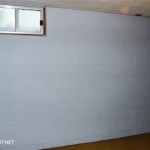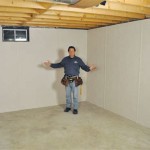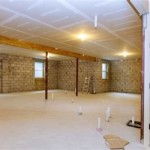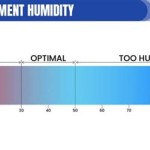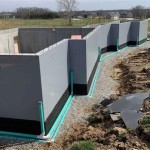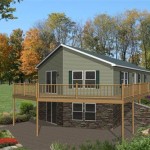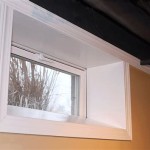Pros and Cons of Vapor Barriers in Basements
Vapor barriers are materials used to prevent moisture from entering a space, typically installed in basements to protect against moisture and humidity. While they can be effective in controlling moisture, they also come with potential drawbacks. Understanding the advantages and disadvantages of installing a vapor barrier in your basement is crucial before making a decision.
Pros of Vapor Barriers:
- Moisture Control: Vapor barriers effectively block moisture from seeping into the basement, preventing dampness, mold growth, and structural damage.
- Improved Indoor Air Quality: Moisture buildup can lead to poor air quality and respiratory issues. Vapor barriers reduce moisture levels, improving the air quality in your basement.
- Reduced Energy Costs: Damp basements require more energy to heat and cool. Vapor barriers help insulate the basement, reducing energy consumption and saving money.
- Increased Comfort: A dry and moisture-free basement creates a more comfortable living space, eliminating musty odors and dampness.
- Protection of Stored Items: Vapor barriers protect stored items in the basement from moisture damage, keeping them dry and in good condition.
Cons of Vapor Barriers:
- Trapped Moisture: If a vapor barrier is installed improperly, it can trap moisture within the basement, leading to dampness, mold, and structural problems.
- Condensation: Vapor barriers can cause condensation on the walls or floor of the basement, especially if the temperature difference between the inside and outside is significant.
- Increased Humidity: Vapor barriers prevent moisture from escaping, which can lead to increased humidity in the basement. This can be problematic for sensitive individuals or items prone to moisture damage.
- Installation Costs: Installing a vapor barrier can be a time-consuming and expensive process, especially if the basement is large or has complex configurations.
- Need for Ventilation: Basements with vapor barriers require proper ventilation to prevent moisture buildup and ensure healthy air quality.
Conclusion:
Whether installing a vapor barrier in your basement is the right choice depends on specific factors, such as the moisture levels, climate, and condition of the basement. It is essential to carefully consider the potential benefits and drawbacks before making a decision. If you have concerns or questions about vapor barriers, it is advisable to consult a qualified professional to assess your basement and recommend the most appropriate moisture control solution.

10 Reasons Why Your Home Needs A Vapor Barrier Crawl Pros

Crawl Space Encapsulation Vs Vapor Barrier What Is Ideal

Installing A Vapor Barrier In Your Basement Doityourself Com

Waterproofing Basements With Dirt Floors Stone Walls More

Our Complete Crawl Space Vapor Barrier System

Basement Vapor Barrier Interior Inspections Internachi Forum

Cleanspace Basement Wall Vapor Barrier System In Salem Beaverton Eugene Portland Or Vancouver Wa Oregon Installation

Pros And Cons Of Crawl Space Encapsulation Hydrohelp911

Do You Need A Vapor Barrier In Basement The Real Seal Llc

Vapor Barriers For Basements And Crawlspaces Greenbuildingadvisor
See Also

